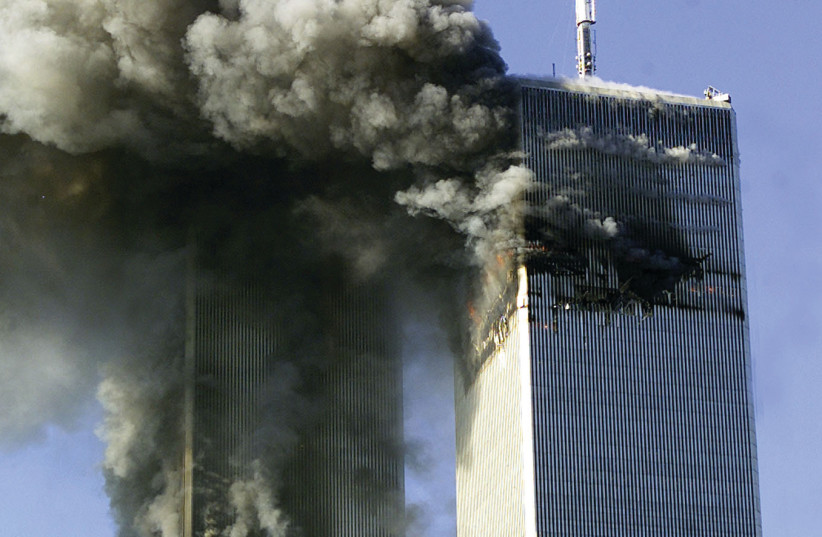Jeremy Corbyn, the United Kingdom’s former Labour leader, made a post on X criticizing the United States actions in Chile 50 years ago, on September 11. The former leader has yet to post commemorating the 22nd anniversary of the September 11 attacks on the United States; which took the lives of nearly 3000 people.
Corbyn went on to describe US and UK forces using Chile as a “laboratory” after the “US-backed coup overthrew the government.”
The video shared by Corbyn alleges that the coup leaders were trained on how to torture by the CIA and that “dogs were trained to sexually attack women.”
Corbyn had previously written a letter in support of a priest who claimed that Israel and wealthy Jews were behind the 9/11 attack on the World Trade Center, the Jerusalem Post reported. Corbyn defended Rev. Stephen Sizer, who in February 2015 posted an article on Facebook blaming Israel for the attack on the New York landmark.
The coup in Chile
Chile on Monday marks 50 years since a violent coup by Augusto Pinochet against socialist President Salvador Allende ushered in two decades of military rule, saw thousands killed and seeded the country's market-led economic model.
The 1973 coup, in which tanks roamed the streets and Hawker Hunter planes bombed a burning La Moneda presidential place, reverberated around the world, marking the start of one of the most brutal of a series of US-friendly, right-wing dictatorships that governed much of South America well into the 1980s, leading to mass arrests, torture and disappearances.

But with half a century gone by, Chile is sharply polarized. Victims of military rule and their families have ramped up a push for justice and accountability, but politically the far-right has gained ground amid growing fears over rising crime. Progressive young President Gabriel Boric is under fire.
"Some people don't know anything about what happened and aren't interested, others are tired that...even after 50 years, many people still don't know what happened to their disappeared relatives," said Elvira Cádiz, who was six years old in 1973.
"And as long as that doesn't change, it will continue to hurt and divide."
She remembers neighbors being lined up in the streets and troops checking house by house in the working-class neighborhood of Estación Central in the capital Santiago where she still lives.
While Boric campaigned for a big event to remember the coup anniversary, he's faced pushback from rival politicians and voters. A recent Pulso Ciudadano survey showed 60% of Chileans were not interested. Almost four in ten people said they mostly blamed Allende's government itself for the coup.
That public split reflects some tough years in the rear view mirror for Chile, which has emerged as one of South America's more stable, economically successful and safe countries.
Violent protests against inequality rocked Santiago in 2019, sparking off a movement to redraft the Pinochet-era constitution. But that was rejected by voters last year in a major blow to the country's progressives. A far right leader, José Antonio Kast, an outspoken supporter of Pinochet, is now playing a central role in a second redraft attempt.
"Polarization is as rampant as it ever was since the return to democracy," said Cristián Valdivieso, director at local consulting firm Criteria.
According to various Chilean human rights commissions, there are 40,175 victims classified as politically executed, disappeared, imprisoned and tortured during military rule. The regime also sent thousands of people into exile.
Pinochet's rule ended in 1990 after most Chileans voted for democracy in a referendum. He spent years fighting human rights charges, though was never convicted of a crime, and died in 2006. But many military officers and ex-members of his secret police were convicted of torture, kidnapping and assassination.
Gaby Rivera, president of the Group of Relatives of Disappeared Detainees, saw her father Luis Rivera taken in November 1975. Over the years her family has been given several versions of his fate, including that his body was thrown into the sea.
"We live this date with pain, but also with hope, because today we see that there is a little light," she told Reuters. "We don't know if we will achieve complete justice, but what we do have to do is get to the truth, find out where they are."
Hundreds of commemorative acts are planned on Monday and regional leaders including Argentina's Alberto Fernández, Colombia's Gustavo Petro and Mexico's Andrés Manuel López Obrador are expected in Santiago.
Carlos Gonzalez, who was detained and tortured in 1976, and later exiled, said it pained him to see some people play down the day's significance.
"We really feel this date affect us, it makes you want to throw stones at the TV when you see that people appear who deny what happened," he said.
"It is good to talk about what happened. And, as a survivor, I feel it as a responsibility to talk about this because there are many people who did not survive."
